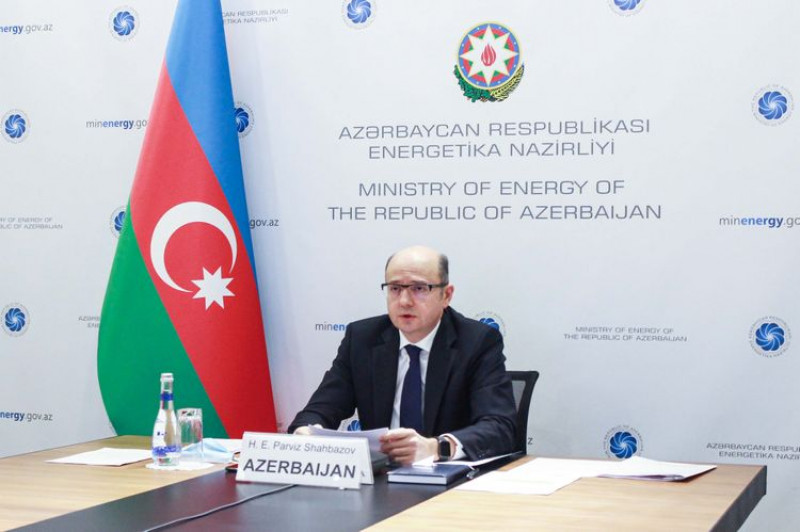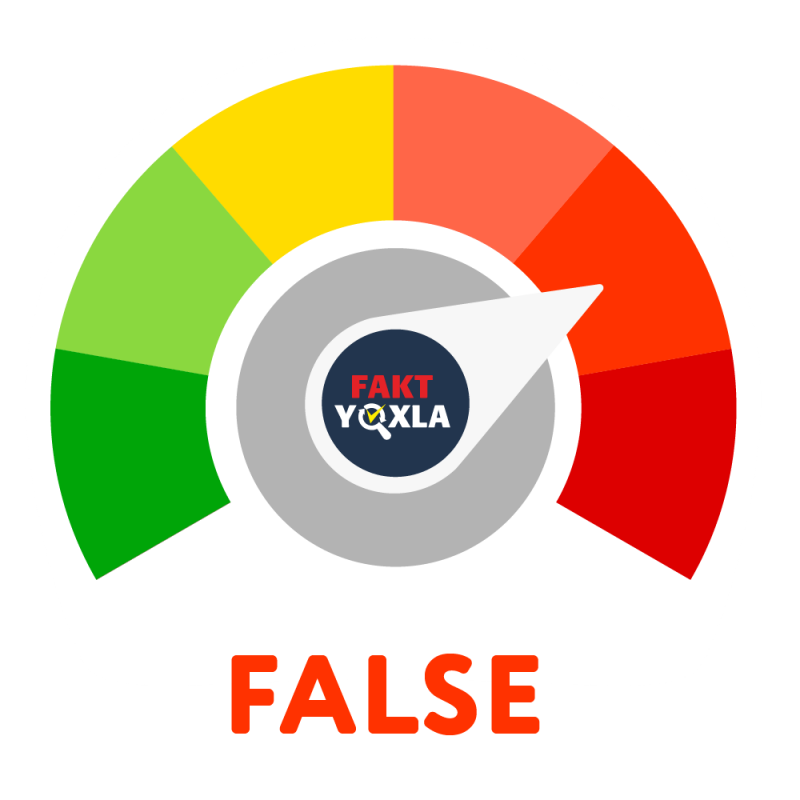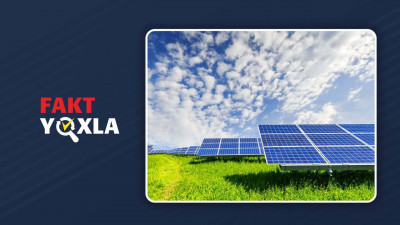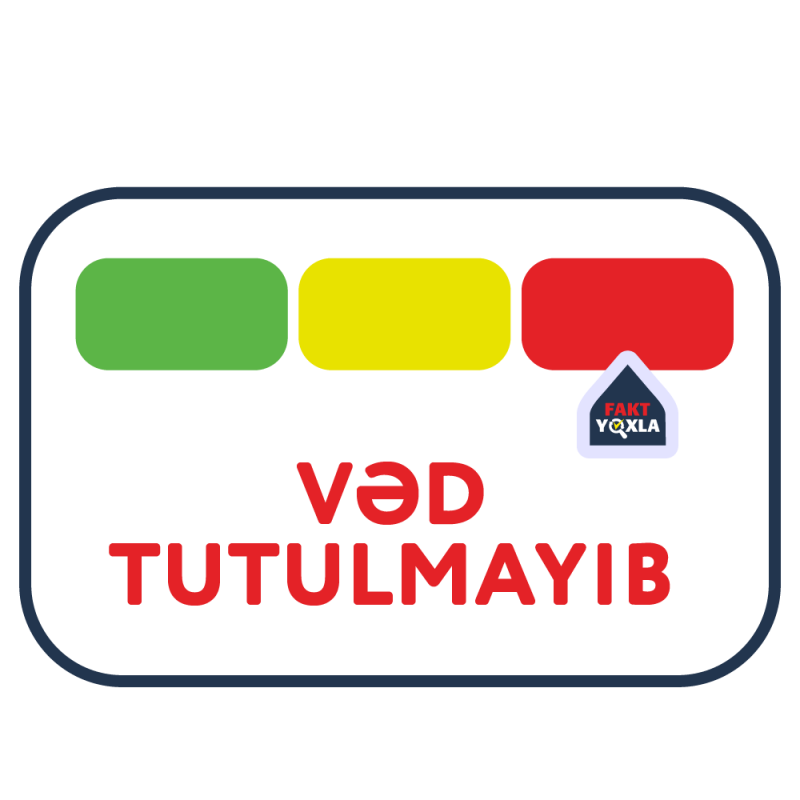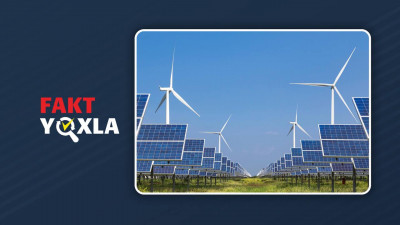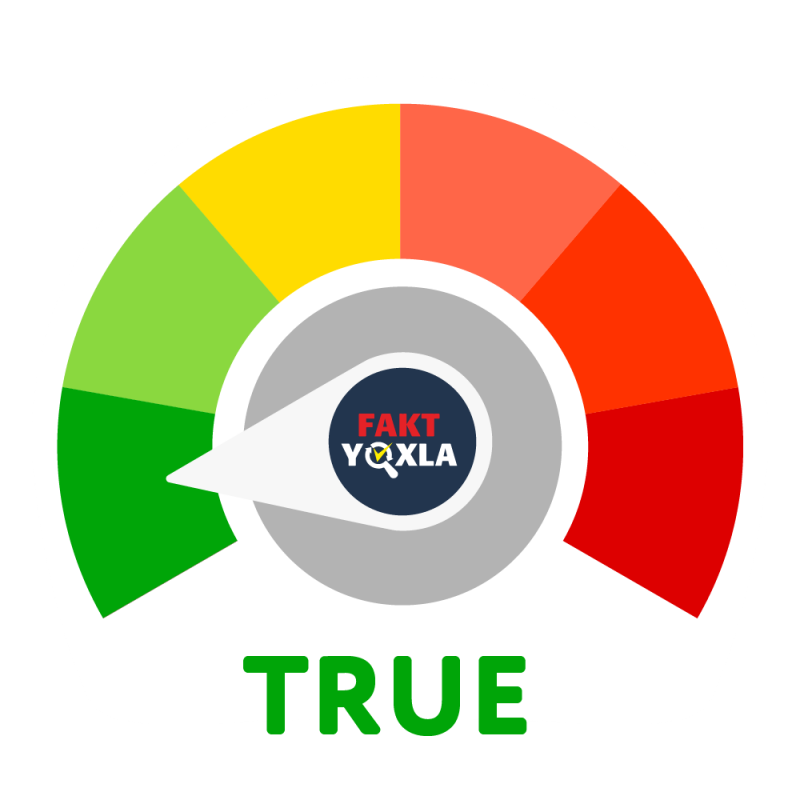"Azerbaijan is one of the few countries in the world that fully meets its energy needs." This was stated by the Minister of Energy, Parviz Shahbazov, at the 31st meeting of the Energy Charter Conference, chaired by Azerbaijan, on December 16-17, 2020.
Fakt Yoxla examined whether Parviz Shahbazov's claim was true.
One of the indicators used to measure the energy dependence of countries is the energy self-sufficiency ratio. This figure is obtained by dividing the country's annual energy production by the total primary energy supply. In the energy atlas compiled by the International Energy Agency in 2018 among 235 countries, territories, and similar entities, Azerbaijan ranked 11th with 385 points. Furthermore, the April 2020 report prepared by this organization notes that Azerbaijan has one of the highest energy supply indicators in the world for large-scale hydrocarbon production. Such that energy production in the country is four times higher than energy demand.
The Energy Trilemma Index, which has been developed by the World Energy Council since 2010, ranks countries on their ability to provide sustainable energy through 3 dimensions: Energy security, Energy equity (accessibility and affordability), Environmental sustainability. According to the results of 2020, Azerbaijan ranks 36th out of 108 countries on the average of all three criteria. In terms of energy security alone, Azerbaijan shares 17th place with the United Kingdom.
Azerbaijan, of which exports are mainly raw materials for the energy industry, also imports the final products of this industry, such as gasoline, kerosene, lubricants, etc. For 2019, the country exported 44,462.1 thousand tonnes of oil equivalent (TOE) energy products and imported 302.8 thousand TOE energy products. In 2019, Azerbaijan's primary energy consumption amounted to 11,291 thousand TOE. Imports accounted for only 2.7% of domestic consumption. That is, the country meets 97.3% of its energy needs.
|
Import of energy products thousand TOE |
2019 |
Export of energy products thousand TOE |
2019 |
| Natural bitumen and natural asphalt |
1.4 |
Crude oil (including gas condensate) |
32,143.9 |
| Liquefied gases |
1.3 |
Natural gas |
11,040.2 |
| Gasoline |
175.4 |
Liquefied gases |
59.7 |
| Diesel fuel (gas oil) |
0.5 |
White oil jet fuel (kerosene) |
123.3 |
| White oil jet fuel (kerosene) |
68.9 |
Diesel fuel (gas oil) |
775.4 |
| Other types of kerosene |
4.5 |
Black oil |
0.2 |
| Petroleum coke |
0.2 |
Petroleum coke |
168.4 |
| Petroleum bitumen |
0.1 |
Petroleum bitumen |
11.8 |
| Lubricants |
35.7 |
Lubricants |
10.1 |
| Electric energy |
11.8 |
Electric energy |
128.2 |
| Other types of fuel |
3.0 |
TOTAL |
44,461.2 |
| TOTAL |
302.8 |
In other words, Azerbaijan's rich hydrocarbon resources and existing energy infrastructure allow it to meet its energy needs.
Fakt Yoxla concludes that Parviz Shahbazov’s claim is TRUE.



